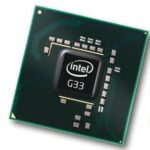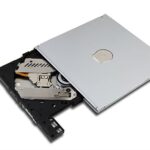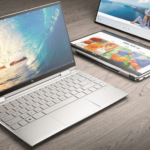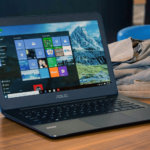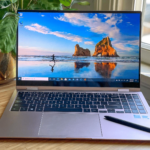Since the very invention of video games, critics have been knit-picking on the potential risks they pose. According to them, games are problematic on so many different levels, including the fact that they are addictive, atrociously harmful to one’s mental health, and also encourage violent behavior. Well, this is a debate for another day.
What we’re really here for is to seek answers to “is gaming bad for the CPU?” Admit it or not, this is something we gamers think of more often. Well, we’re here to satisfy your curiosity with facts & solutions for the same. Let’s find it out…
For starters, the short answer to this age-old question is “NO”. In fact, the CPU is the most reliable PC component. Even under a huge gaming load, any CPU can last at least around 5 years. A good cooling system can enhance this timeframe even more.
In order to guarantee that your CPU remains unharmed despite longer gaming sessions on a regular basis, you need to follow a few preventative measures–
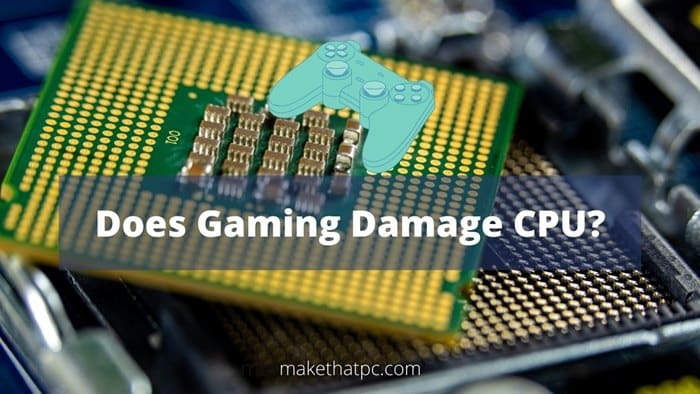
Reasons how gaming can damage your CPU
There are some specific reasons how and why gaming can damage your CPU. We are going to prevent these issues later in this article. But, here are some reasons why you might be unknowingly putting unwanted pressure on your CPU and reducing its lifespan.
- Excessive heat
- Overclocking
- Overuse of CPU
- Poor air management inside the cabinet
How to keep your CPU safe from gaming damage?
1. Do Not Let Your PC Overheat
Though different in a ton of aspects, the use of a graphics card for the purpose of gaming is in no way non-identical from the utilization of your CPU. Your system requires a significant amount of CPU and GPU resources in order to display those beautiful in-game pixels on the screen.
Because of this, they are forced to put forth more effort, which causes them to use more power and generate more heat. The vast majority of modern CPUs and graphics processors are equipped with their own cooling systems, which prevent them from being overheated. Generally, above 80 degrees celsius temperature is considered harmful for your CPU. So, they start to throttle after that.
CPUs purposefully slow down their performance in order to prevent them from overheating and crashing as a result. This phenomenon is called CPU Throttling.
Even if you do not feel the sudden and steady drop in performance, if your system isn’t adequately cooled and you play games for a lengthy amount of time, the heat is bound to damage your system’s hardware.
This also holds true for scenarios like your system isn’t well ventilated. Keeping your PC cool is by far the best way to extend the life of its components. These days, it is easy to afford good AIO Liquid coolers. These are best to keep your CPUs way cooler than your air coolers while you are gaming.
2. Overclocking
Let’s admit it, overclocking is fun…..that sudden boost in gaming performance is what we all crave! With that said, overclocking might cause problems for your CPU in the long run.
If you don’t do things with caution and within the limits, you are bound to run the risk of overtaxing not only your central processing unit (CPU) but also your GPU & RAM. So, you need to keep a close eye on the temperature rise of your PC in order to overclock safely. Much on the most powerful desktop computers and portable gaming laptops, long hours of gaming may be an overcompensating activity, but doing so on a system with an overclocked CPU could be more damaging.
To their credit, the majority of today’s CPUs and graphics cards are designed to thermally throttle. This means that your system will deliberately dial down from its max potential in order to reduce the effects of overheating. In case your cooling fan malfunctions, the system will shut down immediately to protect its components. Now, that’s a pretty handy feature!
Even if your system is overclocked and you’re in the middle of a lengthy gaming session, and overheating kicks in, this feature has got your back. Generally, we shouldn’t be overclocking our CPUs, but even if you decide to, and something malfunctions, you need not worry. The risk of damaging your PC internals due to overheating is pretty low these days. But, I will suggest employing a good cooling system if you really want to overclock.
3. Use good PC components
Motherboard and PSU are the most important things here. Then comes the CPU coolers which we have discussed already. In some rare cases, faulty motherboard capacitors which are used to regulate the power supply to the CPU get damaged and in return, they can damage the CPU as well. So, it is important to invest in a good quality motherboard with good quality capacitors and chokes.
PSU doesn’t play a very important role because the power coming through the PSU will go through the motherboard before reaching the CPU. But, it is good if you buy a good PSU. PSU rating should be checked in order to pick the right one. 80 Plus Bronze is the minimum requirement. You can then go further towards 80 Plus Silver, Gold, Platinum, and Titanium as per your budget.
4. Poor air management in cabinet
I have discussed the importance of proper CPU fan alignment here in this article. Here, I want to highlight again that poor air management inside a case can result in unwanted heating of your components. For example, if the air cooler on your CPU is throwing its air to one side while the cabinet’s airflow is aligned in a different direction, it will create interference and as a result, poor CPU cooling.
If you are using a single AIO liquid cooler, the radiators should normally throw the air outside your case. If there are two AIOs, you should make sure that they are aligned in a proper push-pull configuration. Below is a good example of how you can align a CPU with one or two AIO radiator coolers.
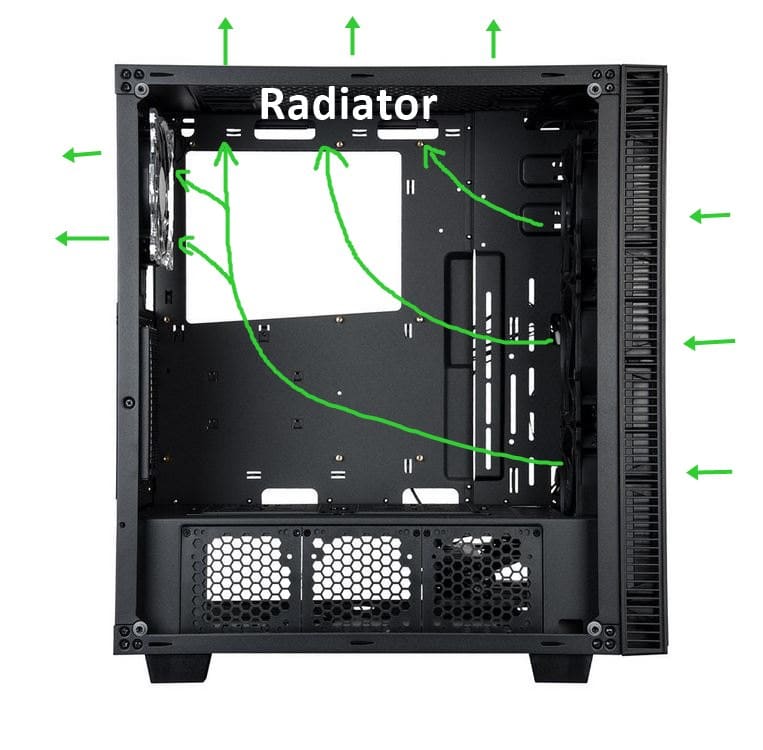
Below, you can see how to align CPU coolers when you are using a tower air cooler.
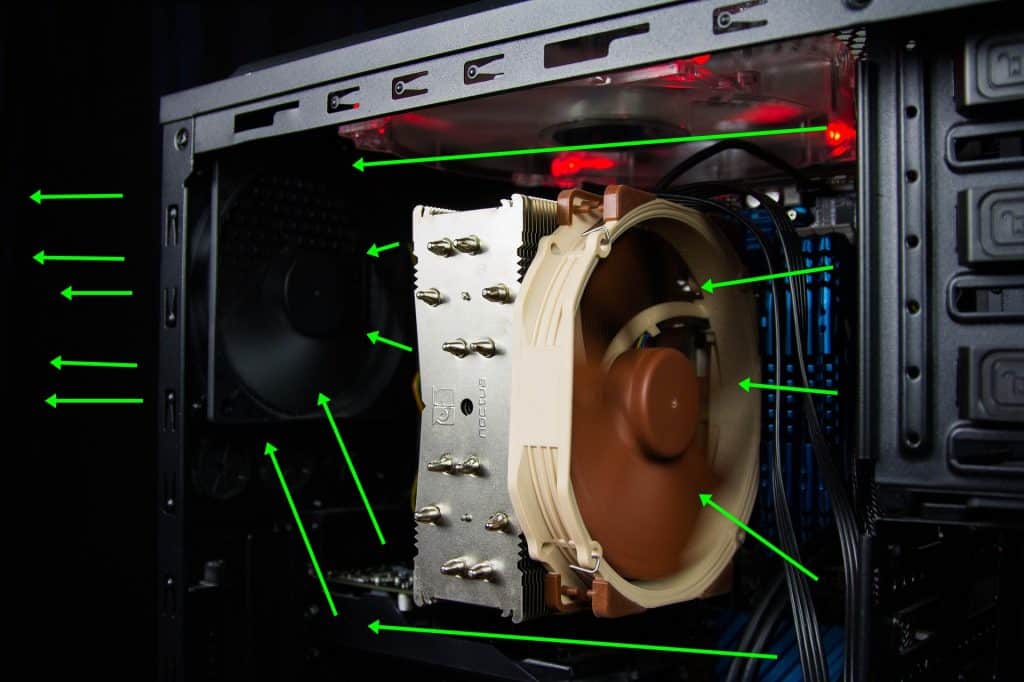
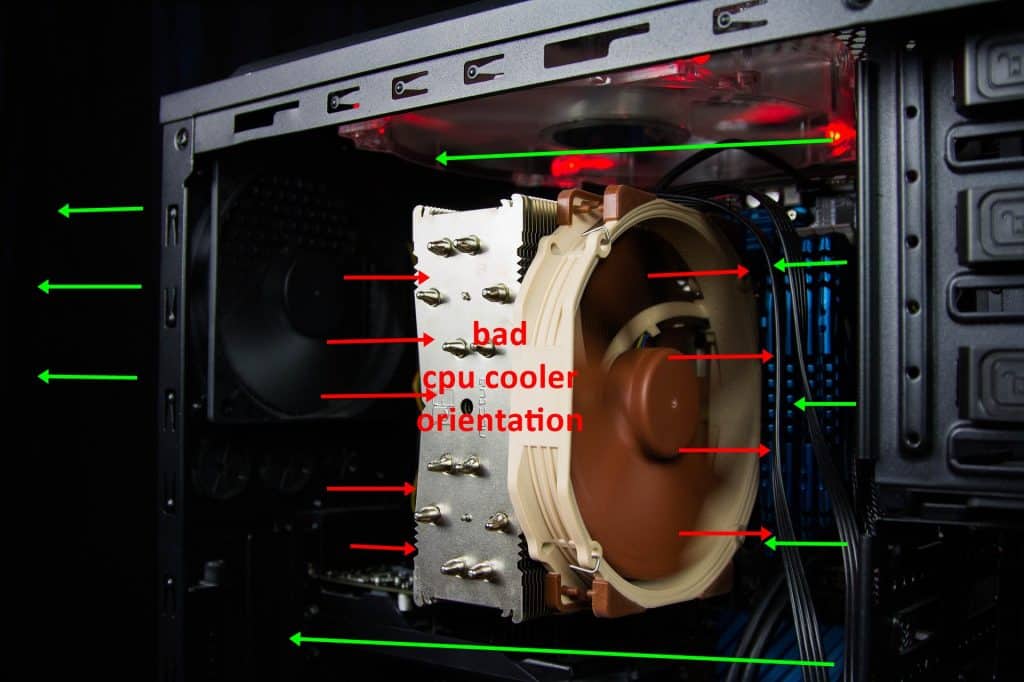
Because the stock CPU coolers from both Intel and AMD will through the air to the top, you can’t do anything for air alignment.
5. CPU Overuse
CPUs are long-lasting. They can work for around 5 to 10 years depending on your usage. So, if you are using your CPU under a lot of heat for longer periods of time, you are certainly putting a lot of loads. This may not result in any direct damage but it will surely make your CPU live lesser than it can live with less usage.
In a NutShell
To put it simply, no, gaming on your PC or laptop will not negatively affect the functioning of your CPU. However, this doesn’t mean you can be all careless about it. If you really wish for a long life for your system, remember to take those basic, yet necessary precautions- and everything will be alright!

I am Anshul Rana, an experienced author specializing in PC gear reviews and Windows 10 software tutorials. With a strong passion for technology and an in-depth understanding of the PC industry, I provide insightful and detailed analyses of computer peripherals, gaming gear, and software solutions. My writing style is concise yet informative, making complex topics accessible to both beginners and advanced users. Through my reviews and tutorials, I aim to offer valuable guidance, helping readers make informed decisions to enhance their PC experience and explore the vast possibilities of Windows 10 software.


